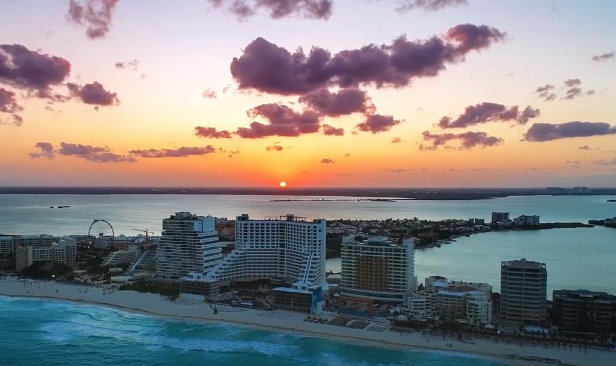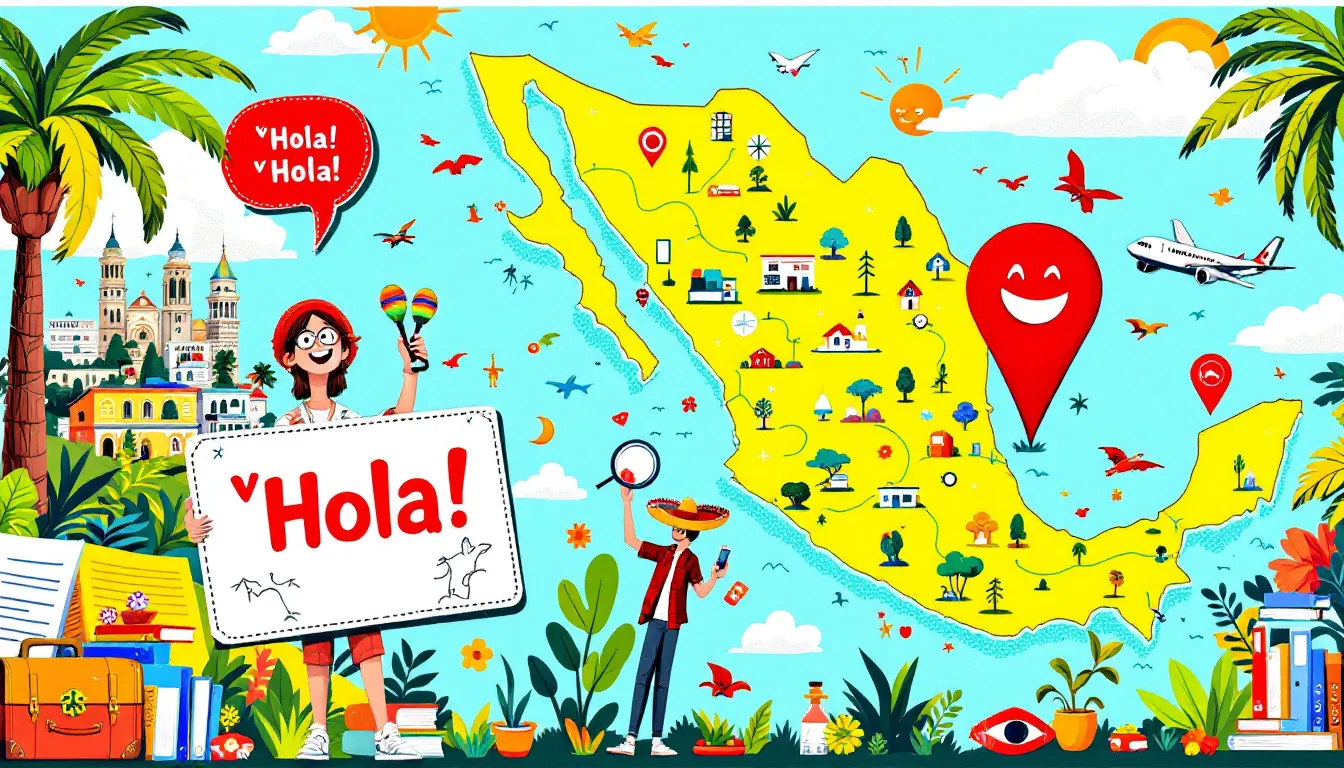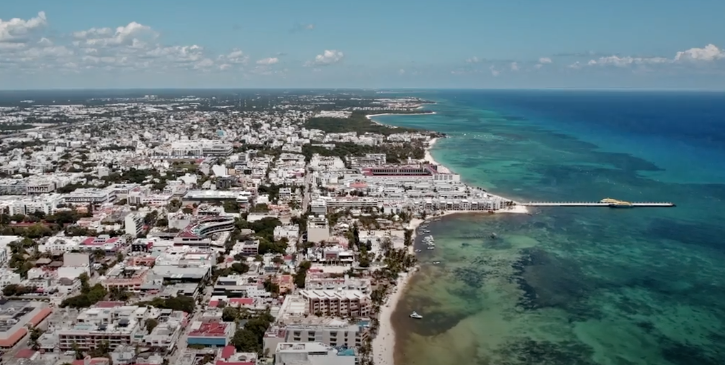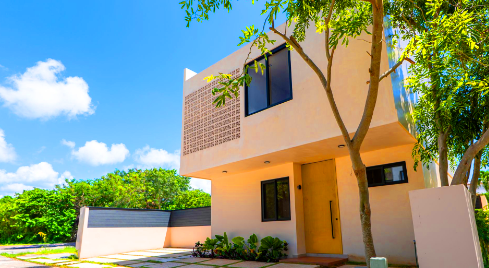"Relocating to Mexico: A Comprehensive Guide for Expats"

Tired of Living in the U.S.?
How to Move to Mexico from the United States: A Practical Guide
To learn how to move to Mexico from the United States, you need to understand residency options, financial preparations, and the necessary legal steps. This guide will walk you through everything—from securing visas to exploring the best cities and integrating into Mexican life.
It probably sounds like a massive undertaking without local help. Mycasa Real Estate has you covered. Reach out to get advice from one of their relocation experts.
Key Takeaways
-
Understanding residency options, such as Temporary and Permanent Resident Visas, is crucial for a successful move to Mexico.
-
Financial preparation, including budgeting for living costs and meeting visa income requirements, ensures a smooth transition.
-
Engaging with local culture, learning Spanish, and connecting with expats can significantly enhance your relocation experience in Mexico.
Understanding Residency Options

Before you pack your bags, you need to understand the residency visa options available for moving to Mexico. A valid passport and the appropriate visa are non-negotiable prerequisites for a smooth transition. The visa application process can be complex, involving various requirements and multiple visits to Mexican consulates. Understanding your options—Temporary Resident Visa and Permanent Resident Visa—will significantly enhance your relocation experience.
A Temporary Resident Visa is ideal for those planning an extended stay in Mexico but not looking to settle permanently. On the other hand, a Permanent Resident Visa offers almost all the rights of citizenship, minus the ability to vote.
Here’s a deeper look at these two types of residency visas to help you decide which one suits your needs best.
Temporary Resident Visa
If you’re planning to stay in Mexico for more than six months but less than four years, a Temporary Resident Visa is your best bet. This visa is versatile, allowing you to apply based on family reunification, studying, or having a job offer. To qualify, you’ll need to prove financial stability. For example, you can demonstrate a monthly income of at least $4,350, or if you prefer to use personal savings, you’ll need a balance of $73,200 over the past 12 months.
Alternatively, if your savings are at least $41,159.52 or you have a monthly income of $2,107.37, you can still qualify for temporary residency. Applying for this visa involves visiting a Mexican consulate with the necessary documents, which can include proof of income, bank statements, and a valid passport.
While the process might seem daunting, careful preparation can help you secure your temporary residency visas status without a hitch.
Permanent Resident Visa
For those seeking a more permanent move, a Permanent Resident Visa is the way to go. This visa provides almost all the benefits of Mexican citizenship, such as access to healthcare and the ability to work, but without the right to vote. Qualification requires showing significant financial resources, typically between $231,000 to $300,000 in savings.
The application process for a Permanent Resident Visa is similar to that of a Temporary Resident Visa and includes visiting a local consulate with the required documentation, such as proof of financial stability and a valid passport. While the financial requirements are steeper, the benefits of permanent residency make it a worthwhile investment for those committed to making Mexico their home.
Financial Preparation for Moving to Mexico

Financial preparation is fundamental to a successful move to Mexico. The country’s affordability is a significant draw for many expats, with consumer prices averaging 139% lower than in the United States. Understanding your financial needs and preparing accordingly ensures a comfortable and stress-free transition.
First, explore the monthly income requirements for residency. Then, consider the cost of living in various Mexican cities and how these factors impact your budget.
Monthly Income Requirements
Qualifying for residency in Mexico requires demonstrating financial solvency. This can be achieved through various criteria, such as monthly net income, personal savings balance, property value, or capital investment. For example, social security, savings, investments, or new income streams can serve as financial sources for U.S. citizens moving to Mexico.
Digital nomads can earn between $600 to $2000 per month, depending on their skills and experience. Creating a budget that aligns with your income and living expenses will help you understand your financial needs and ensure a comfortable lifestyle in Mexico.
Cost of Living in Mexico
The cost of living in Mexico varies greatly depending on the city and your lifestyle choices. For instance, the estimated monthly budget for a family of four is around $1,694. In contrast, the average monthly wage for a family in Mexico is about $2,000 USD.
Cities like Mexico City and Playa del Carmen have different living costs, influenced by factors such as public transport systems and local amenities. Understanding these variations will help you choose a location that fits your budget and lifestyle.
Pre-Move Visit to Mexico

Before making the big move, it’s highly recommended to visit Mexico to experience its culture and environment firsthand. This pre-move visit allows you to explore multiple regions and find a location that aligns with your lifestyle and preferences.
During your visit, consider exploring the best cities for expats and immersing yourself in the local culture. This will give you a better understanding of what to expect and help you make informed decisions.
Best Cities to Explore
San Miguel de Allende, located in the central highlands, is renowned for its vibrant expat community and amenities that cater to their needs. Puerto Vallarta, a beach resort town, offers a tourism-driven economy, water sports, and low crime, making it a favored choice for expats.
Mérida, rich in historical elements from colonial history and ancient Mayan civilization, appeals to those interested in cultural experiences. Exploring these cities helps you find the perfect fit for your new life in Mexico.
Understanding Local Mexican Culture
Mexican culture is warm and welcoming, making it easier for Americans to integrate and feel at home. Engaging with the local culture and speaking Spanish can significantly enhance your expat experience.
Enjoying national dishes, exploring historical sites, and attending colorful festivals are just a few ways to immerse yourself in Mexico’s rich cultural heritage. Understanding and respecting local customs will help you build meaningful connections with your new neighbors.
Practical Steps for Relocating

Relocating to Mexico involves several practical steps to ensure a smooth transition. Finding accommodation, setting up a bank account, and securing health insurance are crucial steps in your move.
Following these steps and using resources like the Complete Mexico Relocation Guide can help you avoid common mistakes and make your move as smooth as possible.
Finding Accommodation
Seasoned expats often recommend renting first to “test drive” an area before committing to purchasing property. Renting allows you to explore options without a long-term commitment and better understand the local market.
If you decide to buy property, foreigners can do so without needing to be a resident or citizen. In restricted zones, buying property through a bank trust (fideicomisos) is necessary. Real estate property tax is also levied by Mexican municipalities on property ownership.
Setting Up a Bank Account
Opening a bank account in Mexico is a straightforward process that can typically be completed within a day. You’ll need documentation such as your passport, a secondary identification (like a driver’s license), proof of address, and your immigration documents.
When choosing a bank, consider accessibility, fees, online banking options, and customer service to find the best fit for your needs.
Health Insurance Options
Health insurance is a crucial aspect of living in Mexico. Most expatriates opt for private healthcare health insurance to avoid high medical bills. Private health insurance policies should cover chronic health issues and emergencies, making it a vital investment.
Comparing quotes from different insurance agents and consulting an advisor helps you find the best health insurance coverage. Individuals with pre-existing conditions should look for insurance companies that cover these issues.
Navigating Legal and Administrative Requirements
Understanding the legal and administrative requirements ensures a smooth move to Mexico. Verifying and preparing the necessary documentation and identification well before starting immigration procedures saves you a lot of hassle.
Importing a vehicle involves complying with local registration laws and ensuring insurance is valid for the country. Here’s a look at specific immigration fees and procedures, as well as the importance of registering with the local consulate.
Immigration Fees and Procedures
The fees and procedures for obtaining residency visas vary based on the type of visa. For instance, the fee for a one-year temporary residency visa is approximately $5,328 MXN in 2024. For permanent residency, the fee is around $6,495 MXN.
Changing immigration status, such as from temporary resident to permanent resident, involves multiple payments totaling around $8,197 MXN. Knowing these fees and requirements helps you budget accordingly and avoid any surprises.
Registering with the Local Consulate
Registering with the local mexican consulate ensures you receive support and assistance during your stay in Mexico. This registration provides essential assistance and access to necessary services and support.
The local consulate can assist with various aspects of your move, including legal advice, emergency assistance, and connecting with the expat community. Taking this step will make your transition smoother and provide peace of mind.
Integrating into Mexican Society

Integrating into Mexican society is key to making the most of your new life. Mexican culture is characterized by a strong sense of community, making it easier for newcomers to establish social connections.
Connecting with neighbors through community events, local markets, and social gatherings can greatly enhance your experience. Respecting and adapting to local customs and traditions helps build meaningful relationships and feel more at home.
Learning Spanish
Learning Spanish is not just practical; it’s a gateway to deeper connections and richer experiences. Speaking the local language empowers expats and improves relations with Mexican residents. One recommended tool for learning Spanish is Duolingo, which covers basic to advanced levels.
Identifying your learning style and using effective methods is vital for quickly mastering the language. Dedicating just 15-20 minutes a day to studying Spanish can significantly boost your proficiency and help you integrate more smoothly into Mexican society.
Connecting with Other Expats
Connecting with other expats can greatly enhance your relocation experience in Mexico. Participating in local events and social gatherings fosters a sense of belonging. Engaging with the expat community provides valuable support, resources, and friendships, making your transition smoother.
Numerous expat groups and communities exist in Mexico, especially in cities with large expat populations. These groups often organize social events, cultural outings, and networking opportunities, helping you feel at home.
Employment and Income in Mexico
Securing employment or maintaining a steady income is crucial when moving to Mexico. Temporary residents wishing to work must ensure their visa includes work permission. Popular job opportunities for Americans in Mexico include roles in tourism, teaching English, finance, IT, and real estate.
Expats frequently find employment in sectors such as technology, healthcare, and tourism. Additionally, Mexico’s growing digital economy offers numerous remote work opportunities, appealing to those seeking a nomadic lifestyle.
Work Permits and Employment
Obtaining a work permit in Mexico typically requires a job offer from a Mexican employer. Work permits are essential for foreign nationals to fill roles where local expertise is lacking. Many expats secure employment in hospitality, education, and technical fields, often requiring specific qualifications.
The Mexican government aims to attract skilled foreign workers to support growth in critical industries through its work permit system. Compliance with labor laws ensures fair treatment and safe conditions for foreign workers.
Remote Work Opportunities
Mexico’s growing digital economy offers numerous remote work options, fostering a vibrant community of digital nomads. Those in the digital sector can find various remote job opportunities, maintaining flexible lifestyles.
Many expats choose remote work options to balance work and leisure, enjoying the best of both worlds. This flexibility allows them to explore Mexico while maintaining their careers.
Education and Family Considerations
Education and family considerations are paramount for expatriate families moving to Mexico. The country offers a variety of educational options, including public schools, private schools, and homeschooling. Public schools provide free education but may not offer an international curriculum, which could be a disadvantage for non-Spanish speakers.
Private schools generally offer bilingual or international programs that cater to expatriates and tend to have higher tuition costs. Homeschooling is also an option, with many resources and support groups available for families choosing this route.
Schools and Education Systems
Families moving to Mexico can choose among public schools, private schools, and homeschooling for their children’s education. The public education system in Mexico ranks low in quality, and expatriate children need to speak Spanish to enroll.
Private schools in Mexico are generally more affordable than those in the U.S., yet they vary in quality and may have special accreditation with schools in the U.S., Canada, and the UK.
Homeschooling is thriving in Mexico, with many resources available for expat families, providing affordable options and guidance.
Family Life and Activities
Family-friendly activities in Mexico can help families adapt to their new environment. Visiting local parks and playgrounds offers a safe and enjoyable environment for children. Participating in family-oriented festivals that celebrate Mexican culture and traditions can also be a great way to integrate.
Exploring museums and cultural centers with interactive exhibits for children can provide educational and fun experiences. Always be aware of your surroundings and avoid areas known for higher crime rates to ensure your family’s safety.
Transportation and Mobility
Understanding transportation options is essential for navigating your new environment in Mexico. Public transit is a popular and accessible way to get around, especially in larger cities. Common modes of public transit include buses, subways, and taxis, which are widely used by locals.
Owning a vehicle involves purchasing, registering, and insuring a car, which is essential for those needing flexibility. Here’s a look at the specifics of public transit and the process of owning a car in Mexico.
Public Transit and Travel
Mexico City features three distinct metro systems: El Metro, Tren Ligero, and Metrobus. During peak hours, these systems can become extremely crowded, so plan your journeys during off-peak hours.
Public transit in Mexico City is crucial for accommodating the large population and includes various systems for efficient travel. Familiarizing yourself with these systems makes navigating the city much easier.
Owning a Car in Mexico
There are two main options for acquiring a vehicle in Mexico: buying a car locally or importing a foreign-plated car. The cost of importing a foreign-plated car ranges from $8,000 to $15,000. This can represent a significant expense for potential buyers. To buy a vehicle locally, you’ll need your passport, driver’s license, visa, proof of address, and valid car insurance.
It’s essential to obtain valid car insurance that covers legal requirements; failure to do so could lead to possible arrest and impounding of the car. Mexico auto insurance may also offer additional coverage for political violence and customizable borderless coverage.
Taxation and Financial Obligations
Tax obligations are a critical consideration for U.S. citizens living in Mexico. You must meet tax obligations in both the U.S. and Mexico, filing tax returns and potentially paying taxes in both locations. Reporting worldwide income to the IRS is mandatory, regardless of where you reside.
Let’s delve into the specifics of U.S. tax obligations and the Mexican tax system to help you navigate these financial responsibilities.
U.S. Tax Obligations
The Foreign Earned Income Exclusion allows qualifying expats to exclude a specific amount of foreign income from U.S. taxation. If you reside in a foreign country for 330 days or more in a consecutive 12-month period, you may qualify for this exclusion.
The foreign earned income exclusion limit is the first $112,000 tax-free. However, it’s crucial to ensure you comply with any additional tax obligations in both the U.S. and Mexico.
Mexican Tax System
Mexico imposes income tax on worldwide earnings for residents and only on Mexican-source income for non-residents. The progressive income tax structure ranges from 1.92% to 35%. Value-added tax (VAT) stands at 16% for most goods and services.
Mexican residents are generally required to file tax returns if their annual income exceeds MXN 400,000. Understanding these tax obligations will help you stay compliant and avoid any legal issues.
Summary
Moving to Mexico from the United States is an exciting adventure filled with new experiences and opportunities. By understanding residency options, preparing financially, visiting pre-move, and following practical steps for relocating, you can make your transition smooth and enjoyable.
Integrating into Mexican society, securing employment, considering education and family needs, navigating transportation, and understanding tax obligations are all crucial for a successful move. With the right preparation and mindset, your new life in Mexico can be both fulfilling and rewarding.
Frequently Asked Questions
What are the main residency visa options for moving to Mexico?
The main residency visa options for moving to Mexico are the Temporary Resident Visa, ideal for stays over six months but under four years, and the Permanent Resident Visa, which grants almost all rights of citizenship minus voting. Choosing the right visa can lead to an exciting new chapter in your life in Mexico!
What financial requirements must I meet to qualify for a Temporary Resident Visa?
To qualify for a Temporary Resident Visa, you can meet the financial requirements by demonstrating a monthly income of at least $4,350, or by having personal savings of $73,200. Additionally, a bank balance of approximately $41,160 or a monthly income of around $2,107 can also make you eligible.
How does the cost of living in Mexico compare to the United States?
You'll find that the cost of living in Mexico is significantly lower than in the United States, with consumer prices averaging 139% less. This makes it an affordable and attractive choice for many expats!
What are some of the best cities to explore for potential expats in Mexico?
For potential expats in Mexico, San Miguel de Allende offers a vibrant community, while Puerto Vallarta boasts beautiful beaches, and Mérida is rich in history and culture. Each city provides a unique experience that makes exploring them exciting and rewarding!
What tax obligations do U.S. citizens have when living in Mexico?
As a U.S. citizen living in Mexico, you can enjoy the benefits of the Foreign Earned Income Exclusion to potentially reduce your U.S. tax burden, but you'll still need to file tax returns in both the U.S. and Mexico. Embrace this opportunity to manage your taxes wisely and make the most of your experience abroad!











Comments (0)